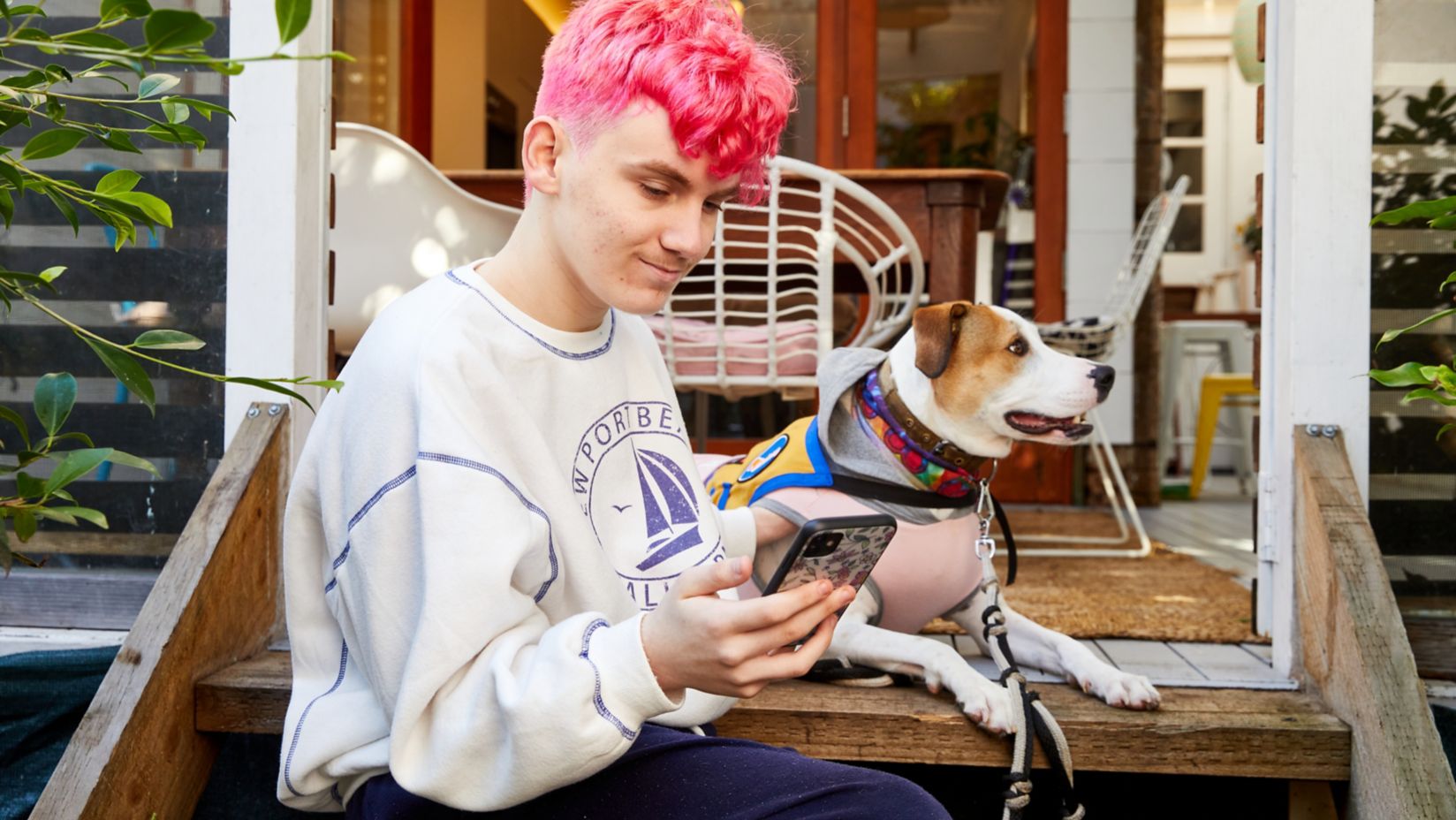How a little self-empathy led to my new career with Telstra
A supportive team environment, regular mentoring and self-reflection have enabled Marcus Helvig to put some unique skills to work in the digital development space.
My psychologist once told me that a quality of autism is a lack of imagination. He didn’t mean imagination in terms of creativity or playing – but rather imagining what someone might be thinking or feeling or why they feel that way.
I ran into this challenge when I had to fill in some personal details on our Workday enterprise management system. Workday uses a series of processes to capture information, in a way that felt completely illogical and didn’t fit my ‘mental model’ of how a website should work. Try as I might, I couldn’t put myself in the mind of the designer to work out how their processes made any sense.
Challenging my self-perception
My autism diagnosis is relatively new, it’s only been a few years, and while I’ve suspected that I might be on spectrum in the past, I hadn’t truly realised the implications of what it meant for me.
Since my diagnosis I’ve received a lot of support, which has helped me understand the way my mind works and has allowed me to make mental links between my thought processes, actions, and underlying autism - including realising why I reacted in such a strong way to Workday.
I’ve also been able to start identifying behaviours and thought patterns that have come from being different and being treated differently, and the impacts of that on how I see myself.
Learning, and ‘unlearning’ old habits I’ve used in the past to protect myself is an ongoing process.
Having only recently received my diagnosis, I’m still struggling to overcome decades of thinking and being told that I’m slow or stupid because I am slower to pick things up, or struggle with tasks that others find easy. This can include knowing everyone else's understanding of what is being discussed in a conversation.
A bold new beginning
I came across Specialisterne, an organisation that understands people on the autism spectrum are disadvantaged by the regular job application process. They work with organisations to help them provide better suited recruitment experiences and to understand the different perspectives and abilities neurodiverse employees can bring.
Specialisterne announced that Telstra wanted to run a pilot Neurodiverse Recruitment Program. In the application process, we didn’t have to decide which of the specific roles we’d be applying for.
My initial expectation was that I'd be interested in one of the more development-oriented roles, rather than the accessibility role I was eventually offered.
Of the 186 initial applicants, 18 of us were selected to take part in the three week program. The majority of the first fortnight was spent with the hiring managers presenting the roles, and then setting indicative tasks for the candidates to complete.
When I was presented with Telstra’s ground-breaking digital accessibility work, it ignited my interest in accessibility as a career. At the end of the program, I was offered two roles, one being the next step along my existing career path, and the other - an accessibility role, which brought with it the prospect of making a difference in the lives of others. Despite my constant fear of change, another one of my neurodiverse traits, I chose a new career path by accepting the accessibility role.
Valuing my unique perspective
One of the long-term struggles in my daily work has been to recognise my value to a business. I view my work as tasks to be done, without realising that I approach my work with a unique perspective and ask questions that may not be obvious to others. As a result, it’s always a pleasant surprise when my work gets called out for being useful or delivering valuable insights.
Autism’s impact on the way my mind works has allowed me to easily understand data, the implications of differences in how it’s recorded, and the identification of potential issues to make the resulting metrics meaningful.
For most of my life, these skills have seemed normal to me and it’s hard for me to recognise that they may not be universal skills that everyone shares. This, of course, also makes it easy for me to under-value these skills.
Telstra has realised the value that different types of thinking can bring to an organisation and have embraced the hiring of neurodiverse people. The support of my team and my managers, and ongoing mentoring have helped me come out of my shell and increased my confidence, which in turn has given me courage to speak out in meetings and venture out of my comfort zone.
I think we all need a push sometimes to get out of our comfort zones and do things that challenge us.
Years of being told I’m different, feeling slow, and struggling in group conversations, had all fed into a pattern of self-doubt and lack of confidence. Being in an empathetic workplace that appreciates my skills, with managers who I can approach any time and who really value me, has made such a difference in my life.
I may not be perfect. I may not always keep up, join in conversations, or pick up on body language, but do any of us do these things right every time anyway?
Accessibility and inclusion for everyone
We’re committed to ensuring our products are accessible and inclusive of everyone.
Author Bio
Marcus Helvig
Marcus has been with Telstra for 2.5 years. He's passionate about improving the visibility of neurodiversity so others feel less alone, better able to understand themselves, and more comfortable sharing their unique stories.




